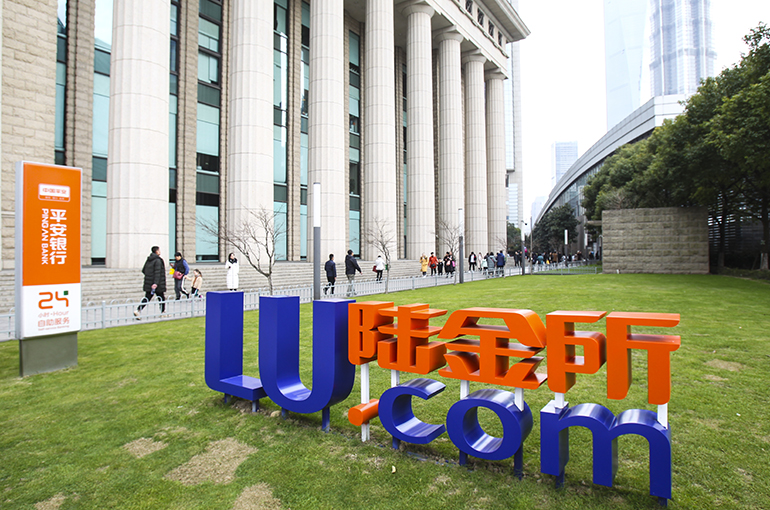 Ping An-Backed Lufax Falls After 90% Drop in Third-Quarter Profit
Ping An-Backed Lufax Falls After 90% Drop in Third-Quarter Profit(Yicai) Nov. 14 -- Shares of Lufax Holding, a small business loans provider backed by China’s Ping An Insurance Group, fell after the firm reported a 90 percent decline in third-quarter profit from a year ago. Even the unveiling of plans to buy Ping An OneConnect Bank failed to boost the stock.
Lufax [HKG: 6623] fell 3 percent to HKD16 (USD2.10) a share in Hong Kong today, while in pre-market trading in New York its equity [NYSE: LU] was down 5.9 percent as of 5.22 a.m. local time.
Net profit was CNY131 million (USD18 million) in the three months ended Sept. 30, compared with CNY1.4 billion (USD191.9 million) in the same period of last year, according to Lufax’s earnings report released after the New York Stock Exchange closed yesterday. Revenue dropped 39 percent to CNY8.1 billion.
The Shanghai-based personal financial services company linked the decline in earnings to small business owners dialling down borrowing.
“While recent data has indicated that China’s economy is on the road to recovery, high-quality demand for loans from SBOs remained weak in the third quarter,” Cho Yong Suk, chairman and chief executive, said in a statement. “Given this environment, we took steps to further de-risk and diversify our business during the quarter.”
Lufax also announced plans today to pay HKD933 million (USD119.5 million) for Ping An OneConnect Bank, a virtual bank of Ping An-backed OneConnect Financial Technology, adding that the deal is still subject to approval by Hong Kong regulators and OneConnect’s shareholders.
Hong Kong-based PAOB is a fully licensed bank and its service scope is similar to traditional banks, Cho said. As of June 30, a significant part of PAOB's loan balance was backed by the Hong Kong government's SME Financing Guarantee Scheme and its capital adequacy ratio was 100 percent, much higher than required.
“We believe the business and target customers of PAOB sync well with our existing operations," Cho said.
Lufax and OneConnect listed in New York in October 2020 and December 2019, respectively, after being earlier spun off by Shenzhen-based Ping An. They have also completed dual primary listings in Hong Kong to reach more investors.
Editor: Emmi Laine